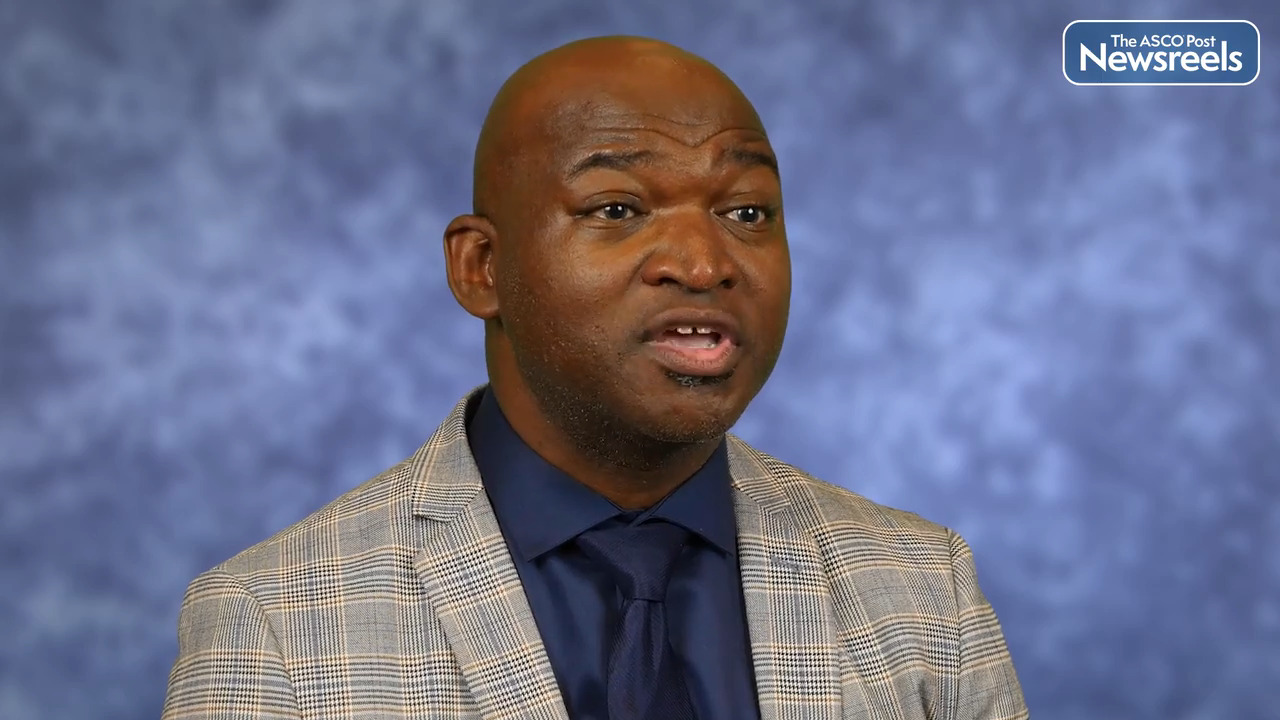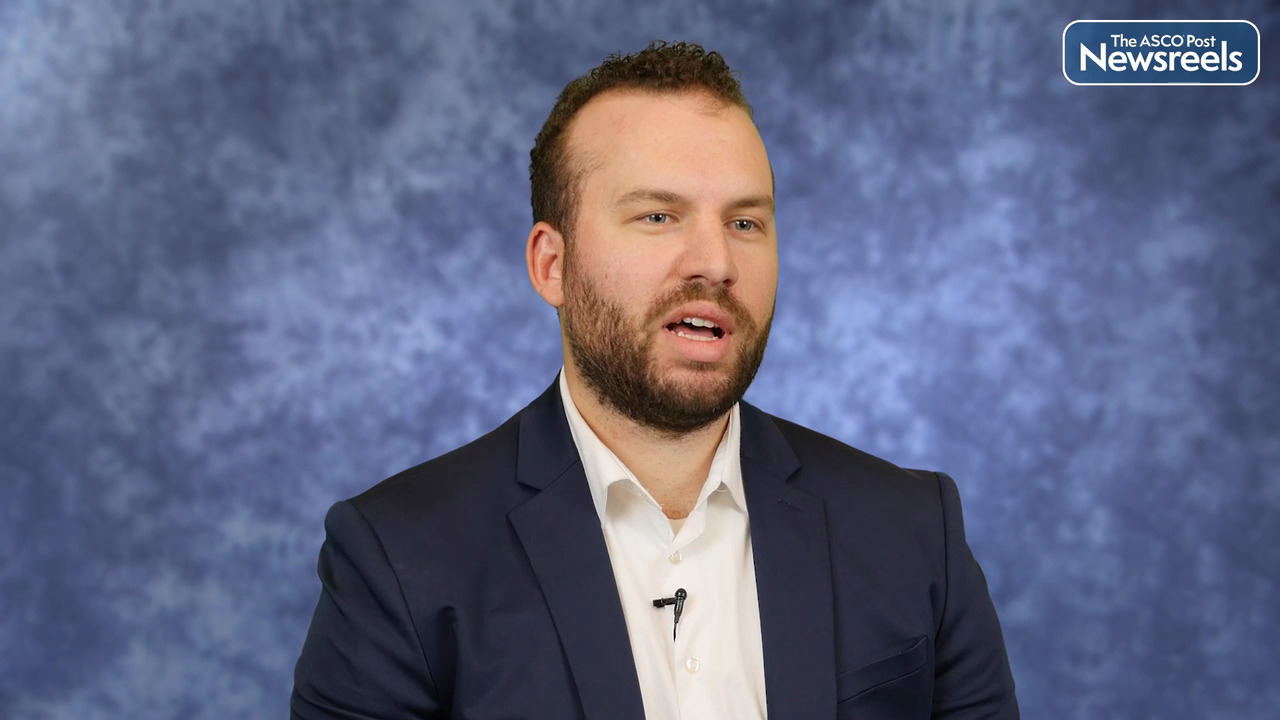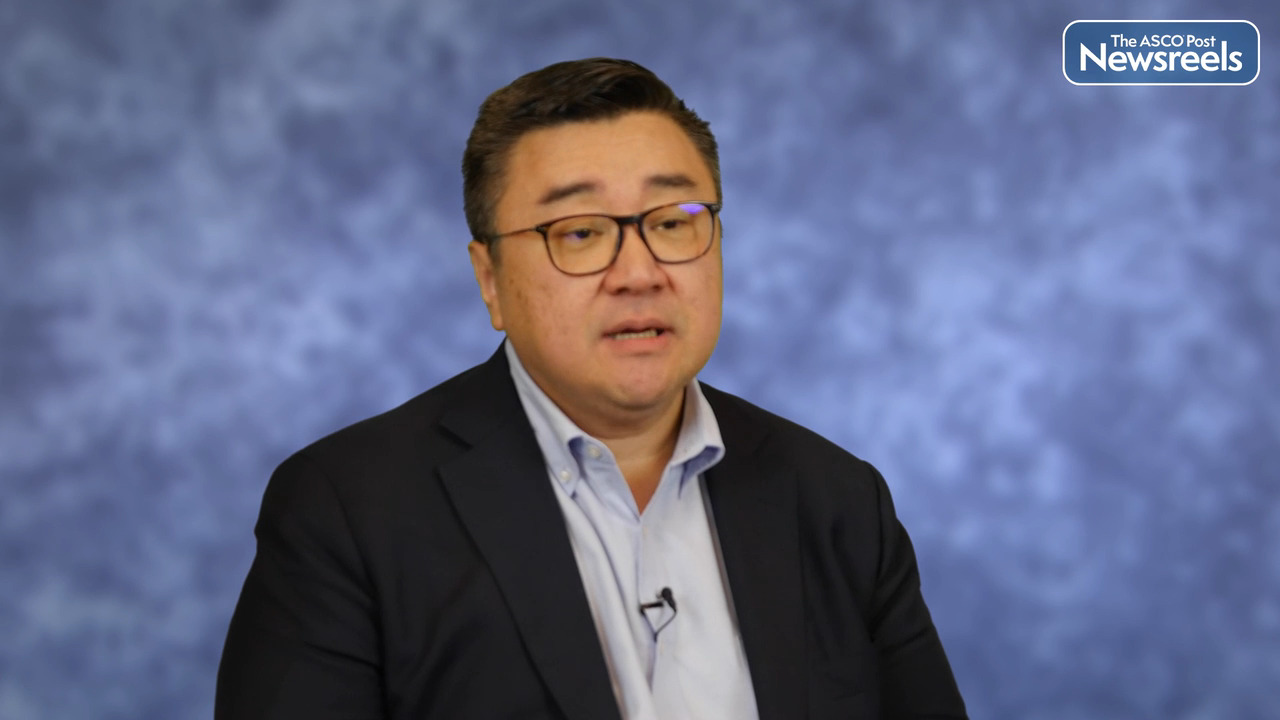Sherry X. Yang, MD, PhD, on Breast Cancer: New Recurrence Score Data From the TAILORx Trial
AACR Annual Meeting 2023
Sherry X. Yang, MD, PhD, of the National Cancer Institute, discusses findings from the TAILORx trial, which showed that, despite chemotherapy, patients with high recurrence scores continue to have a poor prognosis. This result suggests the need to develop new management strategies for patients with early-stage breast cancer. (Abstract LB119)
Transcript
Disclaimer: This video transcript has not been proofread or edited and may contain errors.
Cancer recurrence has been frequently utilized as a surrogate endpoint in clinical studies, particularly in the contact genomic ISIS in several cancer types. Oncotype DX recurrence score was originally developed against distant recurrence for prognosis in estrogen receptor positive, no negative breast cancer.
Primary objectives our study were to assess whether recurrence score has more prognostic weight for recurrence than survival, and to evaluate associations between recurrence score and overall survival, invasive disease-free survival, and recurrence-free interval with based on recurrence as reference in [inaudible 00:01:11] trial population.
Recurrence score was associated with this recurrence-free interval, independent of other prognostic factors. However, recurrence score mid-range 11 to 25 and high-range scores 26 and greater did not provide independent information for survival prognosis in this adjuvant trial population and median follow up about eight years. High-range, but not mid-range scores was associated with invasive disease-free survival. Among 499 death events in this intention to treat population, one third were due to breast cancer, all had the DFS related events. Those including 35% breast cancer, 25% other cancers, 24% other disease and 16% unknown.
It is important to note overall survival and recurrence-free interval had similar event numbers. This recurrence has less events. Overall recurrence score demonstrate the more prognostic weight for recurrence than survival. The data called for developing clinical and molecular ISIS to evaluate mortality risk and disease risk with potential to further increase overall survival, which may have impact on choice, adjuvant chemotherapy, optimal duration, endocrine therapy, and other relevant treatment.
Related Videos
The ASCO Post Staff
Karriem S. Watson, DHSc, MPH, of the National Institutes of Health All of Us Research Program, discusses the importance of engaging in clinical trials for those who are underrepresented in biomedical research. Community engagement is a proven and effective tool, Dr. Watson says, to enhance participation in research by increasing access to and awareness of medical studies and has already been shown to expand the reach of therapies, improving cancer outcomes. (Abstract PL03-05)
The ASCO Post Staff
Dario A. Vignali, PhD, of the University of Pittsburgh School of Medicine, discusses LAG3, the third inhibitory receptor to be used in the clinic. He describes the signaling mechanism this immunotherapy uses; new insight into its function, alone and in combination with PD-1; and an analysis of samples from patients treated with LAG3/PD-1 therapeutics. (Abstract PL04-05)
The ASCO Post Staff
Harry Klein, PhD, of Dana-Farber Cancer Institute, discusses MatchMiner, a software platform launched in 2017, that matches patients with appropriate clinical trials of targeted therapies. The platform uses data on the genetic features of a patient’s cancer, as well as clinical data, to identify trials at Dana-Farber for which the patient might be eligible. MatchMiner can also help recruit patients who meet the trial’s eligibility requirements. (Abstract 1067)
The ASCO Post Staff
Timothy A. Yap, MD, PhD, of The University of Texas MD Anderson Cancer Center, discusses safety and efficacy data on three different PARP inhibitors combined with the ATR inhibitor camonsertib in patients with solid tumors harboring DNA damage response alterations. The findings showed that low-dose intermittent regimens of camonsertib and different PARP inhibitor combinations were safe. In addition, anticancer activity was observed in patients with platinum- and PARP inhibitor–resistant tumors. Patients with late-line ovarian cancer derived the most benefit from therapy. (Abstract CT018)
The ASCO Post Staff
R. Katie Kelley, MD, of the Helen Diller Family Comprehensive Cancer Center at the University of California, San Francisco, discusses phase III findings of the KEYNOTE-966 study, which showed that adding the immune checkpoint inhibitor pembrolizumab to gemcitabine and cisplatin improved overall survival in patients with untreated metastatic or unresectable biliary tract cancer. (Abstract CT008)





